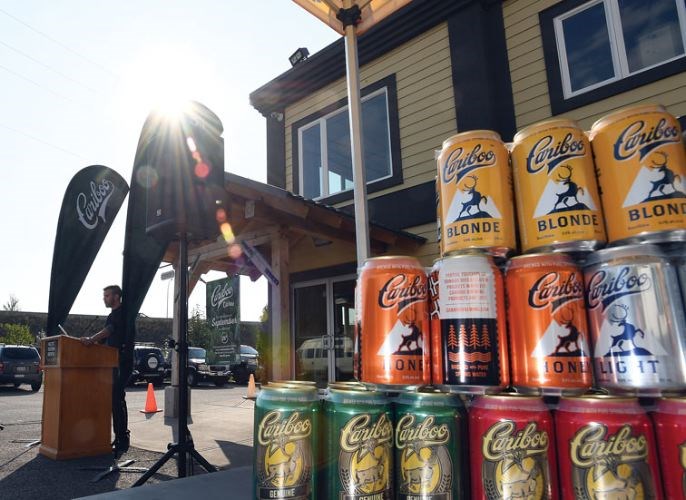For every six-pack of Pacific Western Brewing (PWB) Cariboo product sold in September $0.25 will go towards planting trees in B.C., where devastating wildfires have destroyed more than a million hectares of forest so far this year.
"By Sept. 30, we are hoping to have sold enough six-packs to plant thousands of trees in the Interior where the loss of forest land was most acute," Kazuko Komatsu, PWB owner, said in a press release.
"The reforestation program is one of my core commitments to the community and will endure for years to come."
There were 120,000 Cariboo six-packs sold in September 2016 so if the same amount is sold this September that means an anticipated $30,000 would be donated to the cause.
Summit Reforestation has been contracted by the local brewery to start planting trees in the spring of 2018.
"Twenty-five cents gets us about an eighth of a tree, with the land and everything," Jason Krueger, owner and general manager of Summit Reforestation, said.
So $30,000 will see 15,000 trees planted in the area of Smithers.
Between 1,600 and 2,000 trees can be planted per hectare of land, which means about seven and a half hectares will be required for those anticipated numbers, Krueger said.
Summit Reforestation gets more and more calls for this type of thing, he added. But it does not come without its challenges.
"It's not really easy in B.C.," he said. "You can't just go and plant trees on public land - that's trespassing. We're working with private land owners, basically, so we're trying to find people who have land that isn't great farmland to put trees on and that's probably the biggest bulk of the cost of planting that tree because nobody wants to do that for free. You're possibly asking people to tie up a fair amount of land for a long time - trees take a long time to grow. So it's not cheap to do on that level. We're trying to find a way to bring that cost down because planting trees is very important and we're happy to do it."
PWB will offer progress reports as sales numbers come in during the month of September so supporters of the cause will see how many trees will be planted next year during the project.



